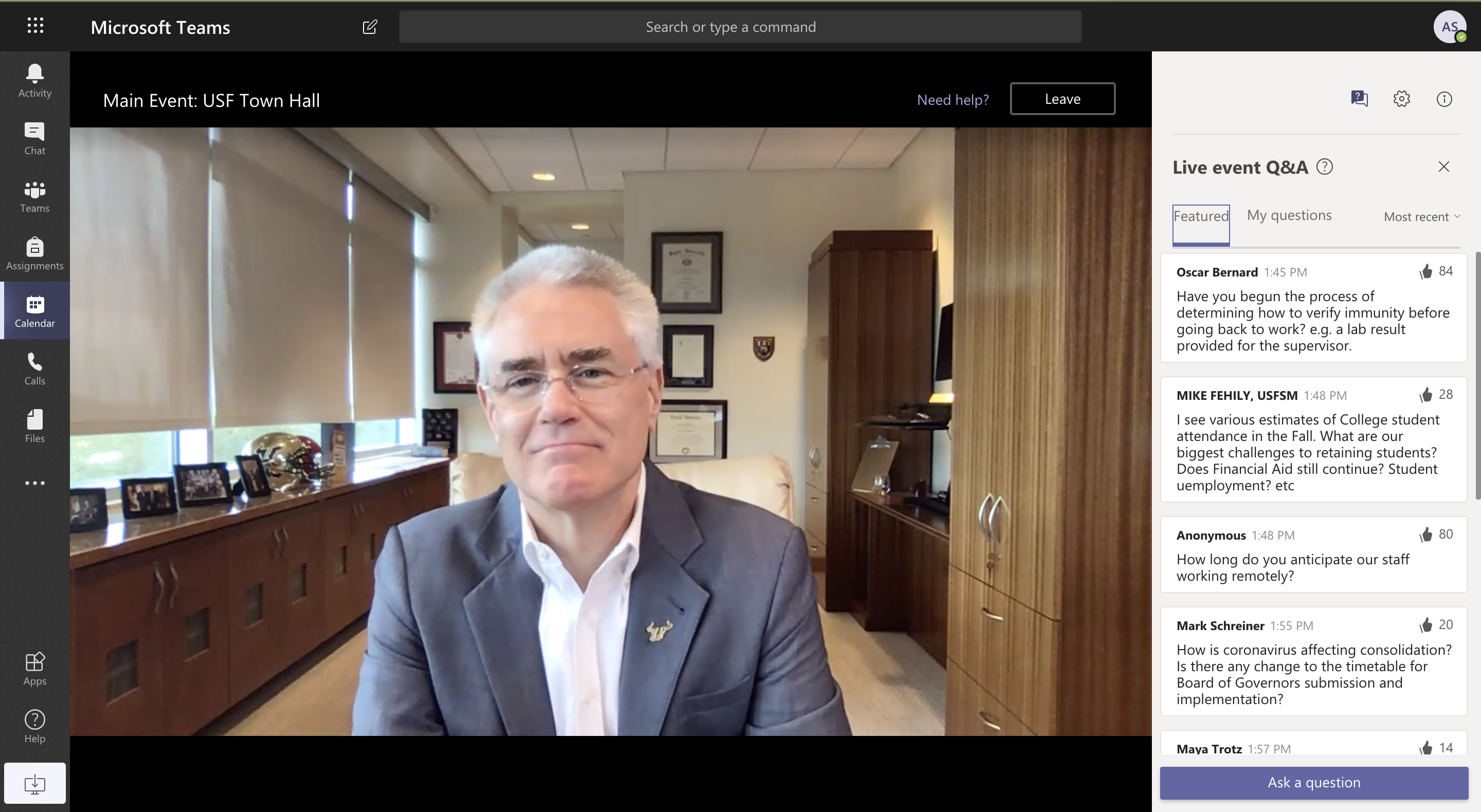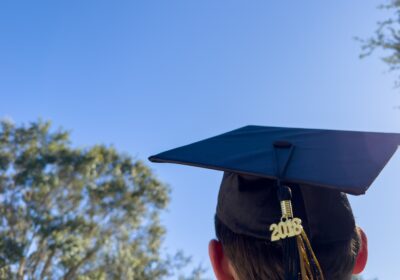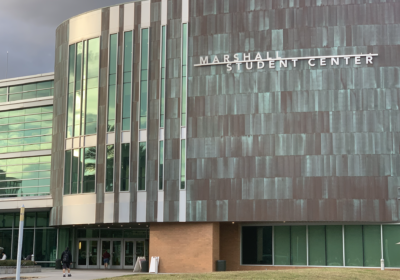USF administration discusses transition back to campus, antibody testing, employment issues

The light at the end of the tunnel may shine a little brighter in the next couple of weeks as the university begins the steps to transition employees back to campus.
USF President Steven Currall hosted a remote town hall through Microsoft Teams on Thursday afternoon in which he and seven other USF administrators answered questions from the faculty and staff.
While sitting in front of bookcases, family mementos and framed diplomas, USF leadership shared university updates and answered COVID-19-related questions. Many of the topics discussed concerned remote employment and when the long-awaited, self-isolation period would come to an end.
While some of the staff and facility members’ curiosities were answered, other responses were not so definitive.
One person questioned how the transition back to campus would be done safely. USF Health Dean Dr. Charly Lockwood was able to provide the forum with a positive update.
“The [coronavirus] curve has been flattening,” Lockwood said.
He said this was due to fewer people requiring hospitalization in the Tampa Bay area.
Because of this progress, Lockwood said USF Health and Tampa General Hospital will start providing antibody tests in the weeks to come.
This blood test will reveal whether or not a person has been exposed to COVID-19, according to NPR. This is specifically important in finding asymptomatic positive cases, also known as the “silent carriers.”
Lockwood said if faculty and staff members test positive for the antibody test, then they can return to campus. However, it would have to be organized by groups.
“We’re looking at folks that are immune going back to work in the next couple of weeks to the next month or so,” Lockwood said. “The next group probably in about 6 to 8 weeks — the non-immune, low-risk patients — and then finally, the vulnerable group in probably 8 to 10 weeks.
“Those numbers keep getting better as we look at where we are in this epidemic.”
Even though people would be back on campus, social distancing and the use of face masks would still be continued.
To keep track of the Q&A, moderator and university spokesperson Adam Freeman read aloud the questions and passed it off to who he thought could answer it best.
Faculty and staff listed their comments and concerns in the chat box located on the right side of the livestream in which they were able to comment anonymously and give likes to comments they agreed with.
When Freeman passed along a question about layoffs and furloughs to Vice President for Business and Finance Strategy David Lechner, he was initially caught off guard.
“Dear Lord, Adam, what did I ever do to you?” Lechner said as he apprehensively chuckled.
“Folks, there are so many unknowns. We don’t know how long this is going to last, we don’t know the impact, we don’t know how we will be providing services to students — so a lot of that answer is going to necessarily be ‘it depends.’”
This has been a looming question for many people across the nation since the number of unemployed Americans has skyrocketed from 1.4 million to 7.1 million in March, according to the U.S. Bureau of Labor Statistics. Nearly 17 million unemployment claims were filed from mid-March through the first week in April.
Specifically in Florida, the U.S. Department of Labor said that more than 470,000 people have filed for unemployment since the beginning of March.
One question typed by an anonymous person, but not discussed, regarded prorated parking pass refunds. Students were originally informed by Parking and Transportation Services (PATS) that they would receive a refund if they mailed in their parking passes by March 29.
On March 30, however, PATS rescinded its statement about refunding students because the department was unsure how it would maintain its “parking facilities” and “operational costs” after the financial impacts of COVID-19.
Like students, USF faculty and staff expressed concerns with the status of their “E” parking permit.
“Will our parking fees be refunded back to us, seeing as the money is still being deducted from our paychecks but obviously none of us are going to campus?” wrote the anonymous person.
Even though the question received 89 likes — the second-most liked question during the Q&A — it was not addressed by university administration.
Though some answers in the town hall were unclear, members of the administration tried to offer faculty and staff a measure of clarity on a return to normalcy on campus.
But, a new definition of normalcy will come to light in the post-coronavirus era, according to Lockwood.
“The new normal will look different than the old normal,” said Lockwood. “It will not look like the world before March 1 or February 20 or whatever you want to use as the date that all of this started.
“People should anticipate a slightly different world than we had before.”






